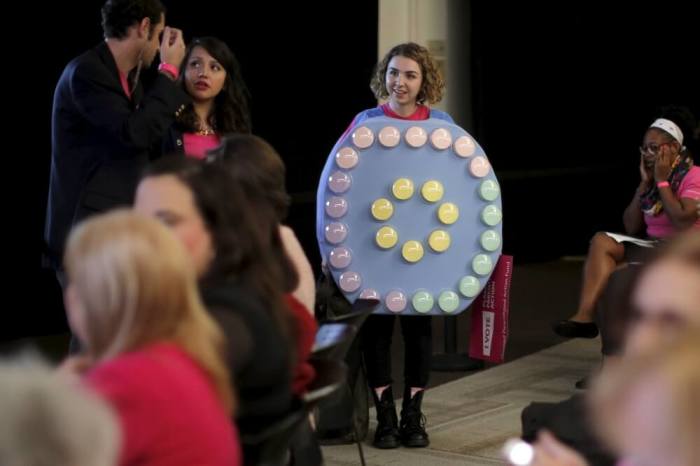Women Who Take Hormonal Birth Control at Higher Suicide Risk, Study Finds

Women who take hormonal contraceptives such as birth control pills, the patch, the ring and hormonal IUDs can face up to three times the risk of suicide as women who never took hormonal birth control, and younger women face the gravest danger, a new study says.
Researchers in Denmark who conducted the study published in the American Journal of Psychiatry looked at associations between hormonal contraceptive use and suicide attempt and suicide in a sample of women from across Denmark who had no psychiatric diagnoses, antidepressant use, or hormonal contraceptive use before age 15 and who turned 15 during the study period from 1996 through 2013.
Nationwide registers were then used to collect data on use of hormonal contraception, suicide attempt, suicide, and other potential variables.
"Use of hormonal contraception was positively associated with subsequent suicide attempt and suicide. Adolescent women experienced the highest relative risk," the researchers concluded.
The study showed that women who used hormonal contraceptives currently or recently were two times more likely to attempt suicide than women who had never used contraceptives. The risk tripled for suicide.
"At first I was surprised by the high risk compared to the results from the depression study I published last year," Charlotte Wessel Skovlund, lead author of the paper from the University of Copenhagen in Denmark said.
Researchers say the patch was linked to the highest risk of suicide attempts, followed by IUD, the vaginal ring and then pills, TIME said.
Among younger women the risk for suicide and attempted suicide was highest in the first two months after they start using the contraceptives before eventually levelling off after a year.
Even after a year of use however, researchers say the risk of suicide remained twice as high among hormonal contraceptives users than among women who did not use them. After seven years of using hormonal contraceptives the risk was still 30 percent higher than that faced by non-users.
Scientists like Karin Michels, professor and chair of epidemiology at University of California Los Angeles told TIME that the study may not have captured all reasons why the risk of suicide is greater among women who use hormonal contraceptives than those who don't.
She noted that women, particularly younger ones, who use contraceptives are more likely to be in relationships that come with emotional challenges.
"For them, they are still more insecure in relationships and may suffer more from breakups, unhappy events and things like that," Michels argued.
The researchers and other scientists agree that while the findings of the study aren't enough to recommend that women stop using hormonal contraceptives, medical personnel should properly discuss their side effects before prescribing them.
"We think the findings are a little concerning, and we think that the consequence of these findings is that prescribers of hormonal contraceptives should make a little more effort to assess women before they get a prescription," Ojvind Lidegaard, the study's senior author from the University of Copenhagen said.
"I believe that hormonal contraception can also have a direct effect on the brain," Skovlund added.




























